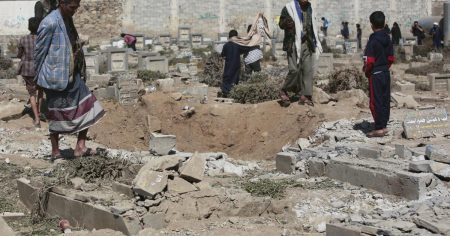The recent confrontation between Australian Prime Minister Anthony Albanese and anti-offshore wind farm activists on the New South Wales South Coast has sparked intense debate and raised questions about the government’s approach to renewable energy projects. During a visit to Lake Illawarra on Friday, Albanese was heckled and booed by a group of protesters who demanded he leave, chanting slogans like “Get out of here Albo, we don’t want you here.” The chaotic scene unfolded as Albanese attempted to greet supporters and announce the Labor candidate for Whitlam. The incident has drawn comparisons to a similar moment in 2020 when then-Prime Minister Scott Morrison was vilified by residents in the bushfire-ravaged town of Cobargo, highlighting the challenges leaders face when addressing contentious issues in emotionally charged environments.
The protesters’ anger stems from the Albanese government’s proposed Illawarra wind project, which has been a point of contention since its announcement in June last year. Initially designed to power 1.8 million homes statewide, the project has faced fierce opposition from local activists who argue that it would disrupt coastal views and threaten marine life. Despite the government’s efforts to address these concerns by scaling back the proposed wind zone by one-third and moving it further offshore, tensions remain high. The activists are frustrated by what they perceive as a lack of meaningful dialogue between the government and the community. Alex O’Brien, president of Responsible Future Illawarra, expressed this sentiment, stating that his group confronted Albanese because the Labor Party had repeatedly declined opportunities to engage with the community about the offshore wind farm.
The hecklers’ outbursts during Albanese’s press conference were both personal and confrontational. One man shouted, “What’s going on there? Why don’t we put them in your f***ing place. Put them in front of your bloody mansion,” while another simply told the Prime Minister to “go home.” Albanese, however, appeared unfazed by the interruptions, maintaining his composure as he delivered his message of support for blue-collar jobs in the steel industry. “Nice to have you here mate,” he responded to one heckler, before reiterating his commitment to workers: “My message is clear, which is ‘We have got your back.’ We support blue-collar jobs.” The protesters were unimpressed, with one yelling, “Another lie.”
The incident has been likened to Morrison’s infamous “Cobargo moment,” where he was rebuffed by a firefighter during a visit to the fire-ravaged town. In that 2020 encounter, Morrison was met with anger and resentment from locals who felt abandoned by the government’s response to the bushfires. Similarly, the recent confrontation with Albanese underscores the challenges of leading during times of conflict and division. Both incidents highlight the importance of genuine engagement and empathy in leadership, as well as the risks of being seen as out of touch with community concerns.
While the government has made efforts to compromise on the wind farm project, the decision by Norwegian firm Equinor and its Australian partner Oceanex to scrap their plans for the development has cast doubt on the project’s viability. This outcome has likely emboldened opponents of the wind farm, who view it as a victory in their campaign against the initiative. However, the broader debate over renewable energy and economic development remains unresolved. As Australia continues to navigate the transition to cleaner energy sources, the Illawarra wind project controversy serves as a reminder of the complexities involved in balancing environmental, economic, and community interests.
In conclusion, the heckling of Anthony Albanese by anti-offshore wind farm activists on the South Coast reflects the deep-seated tensions surrounding the project and the broader challenges of leadership in divisive times. While the government has taken steps to address community concerns, the controversy highlights the need for more inclusive and responsive decision-making processes. As the debate over renewable energy projects continues, the Albanese government will need to carefully navigate these issues to maintain public trust and ensure that its policies align with the values and priorities of the Australian people.









